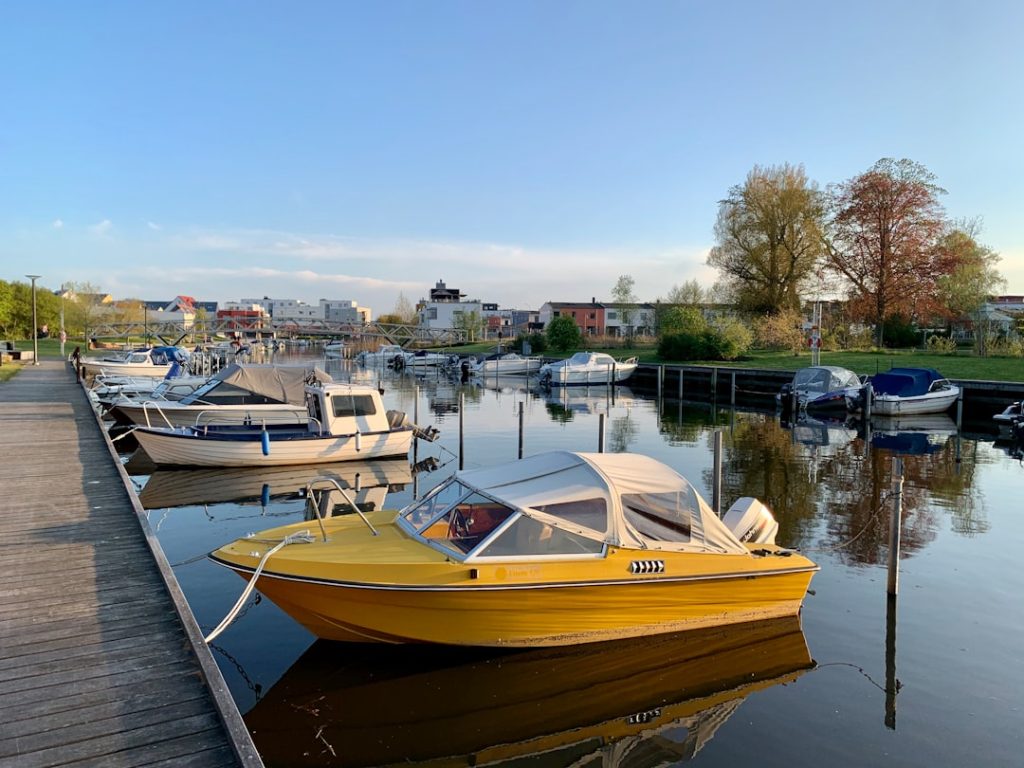When embarking on the journey of purchasing a boat, the first and most crucial step is to establish a clear understanding of your budget. This involves more than just determining how much you can afford to spend on the initial purchase; it also requires a comprehensive assessment of ongoing costs associated with boat ownership. These costs can include insurance, maintenance, storage, fuel, and any necessary equipment or upgrades.
A well-rounded budget will take into account both the upfront investment and the recurring expenses that come with owning a vessel. To create a realistic budget, begin by evaluating your financial situation. Consider your income, savings, and any existing debts.
It may be helpful to create a detailed spreadsheet that outlines your monthly income and expenses, allowing you to see how much you can allocate toward boat ownership without compromising your financial stability. Additionally, it’s wise to set aside a contingency fund for unexpected repairs or emergencies that may arise after the purchase. By having a thorough understanding of your budget, you can make informed decisions that align with your financial goals while ensuring that your boating experience remains enjoyable and stress-free.
Key Takeaways
- Set a clear budget before starting your boat search to guide your decisions.
- Research various boat types to find one that fits your needs and lifestyle.
- Consider used boats as a cost-effective alternative to new purchases.
- Negotiate confidently with sellers to get the best possible price.
- Explore financing options and look for off-season deals to save money.
Researching Different Types of Boats
Once you have a solid grasp of your budget, the next step is to delve into the various types of boats available on the market. The world of boating is vast and diverse, encompassing everything from small dinghies and sailboats to luxurious yachts and powerful motorboats. Each type of boat serves different purposes and caters to different lifestyles, so it’s essential to identify what best suits your needs and preferences.
For instance, if you’re interested in leisurely cruising or fishing, a pontoon boat or a center console might be ideal due to their spaciousness and versatility. On the other hand, if you’re drawn to sailing, you may want to explore different sailboat designs, such as catamarans or monohulls, each offering unique sailing experiences. Researching the specifications, advantages, and disadvantages of each type will help you narrow down your options.
Online resources, boating magazines, and forums can provide valuable insights into the performance and suitability of various boats for different activities, ensuring that you make an informed choice.
Exploring Used Boat Options

The allure of purchasing a brand-new boat can be tempting, but exploring used boat options often presents significant advantages. Used boats can offer substantial savings compared to their new counterparts while still providing excellent performance and enjoyment. When considering a used boat, it’s essential to conduct thorough research and inspections to ensure that you’re making a sound investment.
Start by identifying reputable sources for used boats, such as local dealerships, online marketplaces, or classified ads. Once you’ve found potential candidates, arrange for inspections to assess their condition. Look for signs of wear and tear, such as hull damage, engine issues, or outdated electronics.
Additionally, inquire about the boat’s maintenance history and any previous repairs. A well-maintained used boat can provide years of enjoyment at a fraction of the cost of a new model. Furthermore, many used boats come equipped with accessories and upgrades that can save you money on additional purchases.
Negotiating with Sellers
| Metric | Description | Typical Range | Importance |
|---|---|---|---|
| Initial Offer Discount | Percentage below the asking price offered initially | 5% – 15% | High |
| Counteroffer Frequency | Number of counteroffers exchanged before agreement | 1 – 3 | Medium |
| Negotiation Duration | Time taken from initial offer to final agreement (days) | 3 – 14 days | Medium |
| Concessions Made | Number of concessions or compromises made by buyer | 1 – 4 | High |
| Seller Response Time | Average time seller takes to respond to offers (hours) | 12 – 48 hours | Medium |
| Final Price vs Asking Price | Percentage difference between final agreed price and original asking price | 0% – 10% below asking | High |
| Use of Contingencies | Percentage of deals including contingencies (inspection, financing) | 60% – 90% | High |
Negotiation is an integral part of the boat-buying process, particularly when dealing with private sellers or dealerships. Understanding the art of negotiation can lead to significant savings and ensure that you secure the best possible deal on your chosen vessel. Before entering negotiations, arm yourself with knowledge about the boat’s market value by researching similar models in your area.
This information will provide you with a solid foundation for your discussions. When negotiating, approach the seller with respect and professionalism. Start by expressing genuine interest in the boat while also highlighting any concerns or issues you’ve identified during your inspection.
This strategy can create an opening for negotiation by demonstrating that you are informed and serious about making a purchase. Be prepared to make an initial offer that is lower than your maximum budget; this gives you room to negotiate upward while still staying within your financial limits. Remember that negotiation is often a back-and-forth process, so remain patient and open to compromise as you work toward a mutually beneficial agreement.
Considering Financing and Payment Options
Financing is another critical aspect of purchasing a boat that requires careful consideration. Depending on your budget and financial situation, you may choose to pay for the boat outright or explore financing options through banks or credit unions. If you opt for financing, it’s essential to shop around for the best interest rates and terms that align with your financial goals.
Before committing to a loan, evaluate your credit score and financial history, as these factors will influence the terms offered by lenders. A higher credit score typically results in lower interest rates, which can save you money over the life of the loan. Additionally, consider the length of the loan term; while longer terms may result in lower monthly payments, they can also lead to higher overall interest costs.
It’s crucial to strike a balance between manageable monthly payments and minimizing total interest paid over time.
Looking for Off-Season Deals

Timing can significantly impact the price you pay for a boat. Many buyers are unaware that purchasing during the off-season can lead to substantial savings. The boating season typically peaks in spring and summer when demand is high; however, during the fall and winter months, sellers may be more motivated to negotiate prices as they seek to offload inventory before the colder months set in.
During the off-season, dealers often run promotions or discounts to attract buyers who are willing to make purchases despite the less favorable weather conditions for boating. Additionally, private sellers may be more flexible with their pricing as they look to sell before winter storage costs accumulate. By strategically timing your purchase during these slower months, you can take advantage of lower prices and potentially find better deals on both new and used boats.
Attending Boat Shows and Auctions
Boat shows and auctions present unique opportunities for prospective buyers to explore a wide range of vessels in one location while also gaining valuable insights from industry experts. Attending these events allows you to compare different models side by side, ask questions directly from manufacturers or dealers, and even participate in test drives if available. Boat shows often feature special promotions or discounts exclusive to attendees, making them an excellent venue for securing a great deal on your desired boat.
Additionally, auctions can provide opportunities to purchase boats at competitive prices; however, it’s essential to do your homework beforehand. Research the auction house’s reputation and understand the bidding process thoroughly to avoid any surprises on auction day. Whether attending a show or an auction, being well-prepared will enhance your experience and increase your chances of finding the perfect boat at an attractive price.
Utilizing Online Marketplaces and Classifieds
In today’s digital age, online marketplaces and classified ads have revolutionized how buyers search for boats. Websites such as Craigslist, eBay Motors, Boat Trader, and Facebook Marketplace offer extensive listings that cater to various budgets and preferences. These platforms allow buyers to filter their searches based on specific criteria such as price range, location, type of boat, and more.
When utilizing online marketplaces, it’s essential to approach listings with caution. Always verify the legitimacy of sellers by checking their profiles or reviews if available. Additionally, arrange for inspections before finalizing any purchases; this step is crucial in ensuring that you’re making an informed decision based on the actual condition of the boat rather than just photographs or descriptions online.
Engaging with sellers through these platforms can also provide opportunities for negotiation; many sellers are open to offers if they believe they are receiving serious inquiries from potential buyers. By leveraging these online resources effectively, you can expand your search beyond local listings and discover boats that may not be available in your immediate area. This broader reach increases your chances of finding the perfect vessel that meets both your needs and budgetary constraints while enhancing your overall boating experience.


